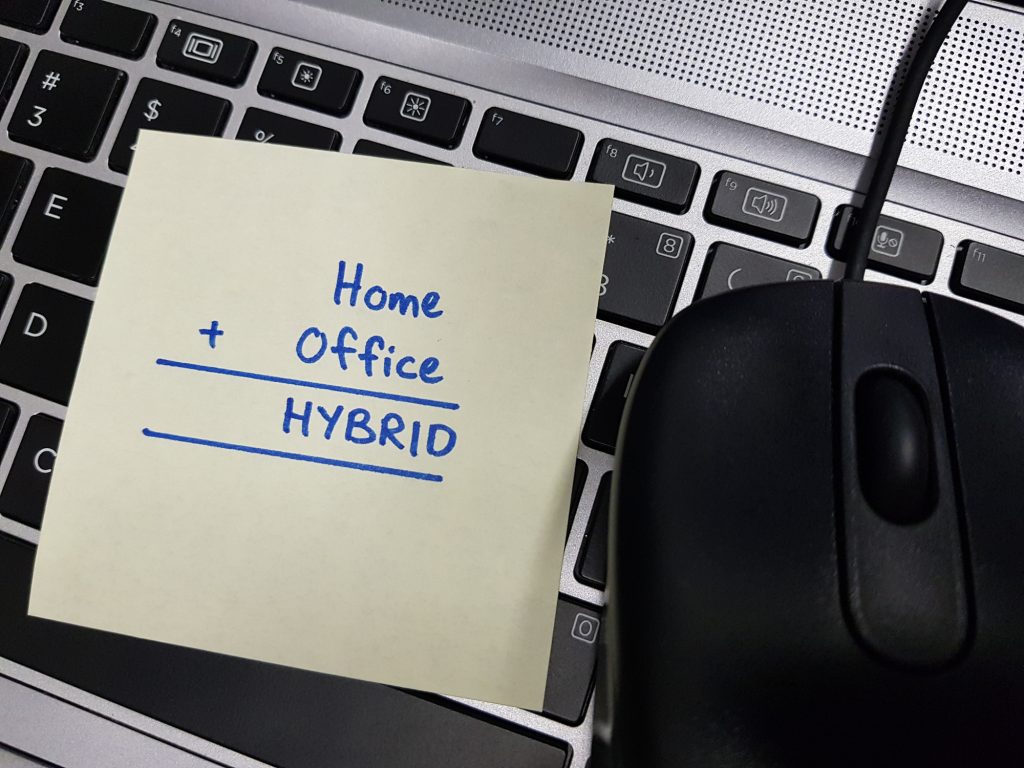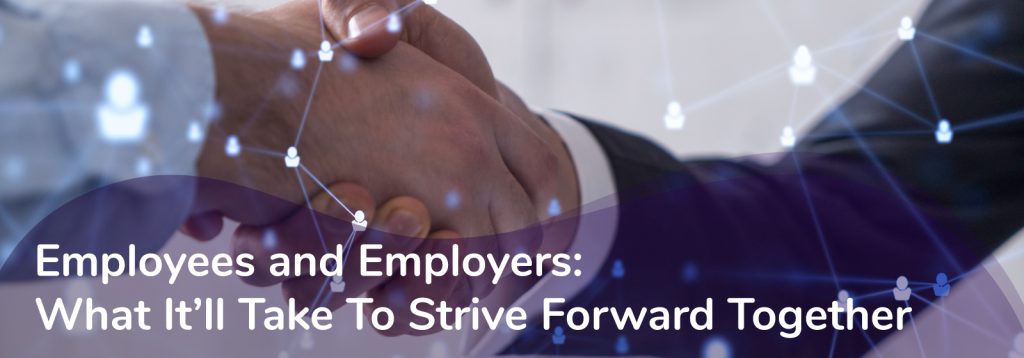Employee expectations during the Covid-19 pandemic have clearly changed, but as they return to the workplace in full numbers, the economic backdrop for employers has also darkened, with hiring workers that meet their digital demands a challenge, as well as inflation increasing their operating costs.
Singapore President Halimah Yacob summed up what Singapore employees’ challenges are today aptly, saying: “It is a challenging time for local workers, with the war in Ukraine pushing up living costs and electricity prices.”
However, it is not “all doom and gloom, as the push for sustainability, digitalisation and innovation, will also bring opportunity”. She shared these thoughts at a dialogue with Young NTUC union leaders in late March 2022, according to The Straits Times.
President Halimah also noted that employers had their own set of problems to deal with in the aftermath of Covid-19, with supply chain disruptions affecting workers in the shipping and logistic industries, which have pushed up costs for businesses worldwide.

Hybrid working matters for Singapore workers
According to a local report done by professional services network Pricewaterhouse Coopers, the five things Singaporean workers are concerned about include job security, being able to reskill and upskill, fairness in the workplace, managing remote working, and making a difference in their jobs.
Remote working, in particular, has become a particular buzz topic, given that all Singaporean employees are allowed to return to their workplaces, as part of an overall update on Singapore’s new phase in dealing and living with the Covid-19 pandemic.
However, a survey by human resources solutions firm Randstad found that after working from home for close to two years, because of the Covid-19 pandemic, 41% of local workers would rather work remotely than receive a bonus.
Randstad Singapore and Malaysia’s managing director Jaya Dass believes this is likely due to various benefits these employees experienced while working remotely, such as saving time and money from commuting, having more personal time and higher productivity.
Mark Dixon, the founder and CEO of Jersey-based workspace company IWG PLc, said to The Straits Times: “One of the lasting legacies of the pandemic will be the ability to work in different ways, in different places, and more companies will have distributed workforces empowering their teams to work closer to or from home.
“Research has shown time and again that hybrid work is very popular with employees. They enjoy being able to work a mix of from home, at an office closer to home and occasionally from a corporate HQ.”
Singapore employers are showing flexibility, but have their own cost and hiring challenges
Thankfully, local employers are compromising, stepping up to transform their employee experiences and their workspaces with technology, in order to attract and retain workers.
Madam Low Pek Kem, president of the Singapore Human Resources Institute (SHRI), revealed many local companies have adopted various hybrid work arrangements that do meet their business needs, while keeping in mind our safe management and legal requirements.
Ms Linda Teo, the country manager of Manpower Group, also shared: “Companies have upgraded their digital infrastructure to ensure they have the technology required to support their business functions.
“Many companies have also implemented new policies to address their employees’ well-being, one of them being a ‘right to disconnect’ policy.”
4 out of 5 employers said to The Straits Times that they plan to make these flexible work arrangements permanent, after observing that firms that have hybrid working arrangements had comparable and improved staff productivity.
But as with all things, there are pros and cons. Mr Ang Yuit, vice-president of the Association of Small and Medium Enterprises (ASME), said: “While some individual employees may have reported improved productivity from the reduced commute time, many employees have reflected from the ground that a lack of teamwork from fewer face-to-face meetings have harmed company-wide alignment.”
Covid-19 has also hurt some SMEs hard, with labour costs rising due to manpower shortages whenever workers fell ill. On-demand workers had to be sought by such employers to meet deadlines for projects.
Local businesses are also feeling rising cost pressures in several aspects — manpower, logistics, raw materials and electricity.
Mr Bernard Tay, the managing director of Jinjja Chicken, revealed to Channel NewsAsia (CNA) that the operating costs for his Korean fried chicken business have increased by between 20% and 30% last year, compared to 2020.
Describing food costs as “crazy”, Bernard said the price of one tin of cooking oil has gone up by 40%.
“Our margin is so thin, like ice,” he added.
With so many factors pushing operating costs up, employers are also hard-pressed. Serena Ling, the head of research and strategy at OCBC Bank, said to CNA that the current situation is an “inflation storm”.
“You not only have externally-driven imported inflation because of global supply chain disruptions … The question is whether some industries and firms are in a position to pass on the build-up of higher operating costs,” said Ms Ling.
Hiring is also a challenge for local employers. Bernard revealed: “You walk in a mall, which food and beverage (F&B) establishment is not putting up a hiring notice?”
“And the salary offered is higher and higher. People can literally quit here today, and tomorrow work in the same mall in another outlet just next to mine.”
Local job vacancy numbers have been hitting all-time highs in the past two years, and adding to their problems for employers is not being able to find the right talent for their vacancies.
Singapore Manpower Minister Tan See Leng shared that if these vacancies are accumulating and not filled, it shows that employers are finding it difficult to get the right talent, and some of these vacancies are also because of a shortage of digital skills amongst our workforce and job seekers.
Of course, some roles could also be less attractive than other options available to job seekers, due to wage or working conditions, he added.
Minister Tan believes employers should also redesign jobs to help them hire more locals.
He referenced government schemes such as the Services Industry Transformation Programme, and the Jobs Growth Incentive for employers in the services sector, adding: “I don’t think we can go back to the old way of doing things without considering how to continue to innovate, how to continue to digitalise, and how to continue to use tech for some of the jobs to improve the productivity.”
Read More: What Are the Top 10 Job Vacancies in Singapore Right Now, and How Much Will They Pay?
The solution is in tripartism
Formerly a unionist herself, President Halimah also shared how it is important for Singapore employees, employers and the government to work together to surmount these challenges, through tripartism.
According to the Ministry of Manpower, tripartism in Singapore refers to the collaboration among unions (who represent worker’s interests), employers and the government.
The key tripartite issues include:
- Job re-creation
- Raising the effective retirement age
- Training and upgrading the workforce
- Fair and progressive employment practices
- A flexible wage system
The President believes it is important to help Singaporeans understand how tripartism has helped the country progress, rather than “just another word we bandy around”.
NTUC secretary-general Mr Ng Chee Meng, who was also at the dialogue, shared how unions have worked with manufacturing companies to revamp their workplaces and processes, and also endeavour to help workers with “life problems” via the NTUC’s social enterprises.
These would be like how previous generations of Singaporean workers built a relationship with NTUC via FairPrice supermarkets.
In his May Day 2022 message, Minister Tan said: “It behoves us as tripartite partners to sustain this spirit of collaboration and trust in the years and decades ahead.
“The fact that employers and workers have come through the last two years of Covid-19 without the need for excessive regulation or litigation, but with a sense of unity and cohesion, should give us even greater confidence that our tripartite approach works well.
President Halimah concluded: “In the labour movement, the going is always tough. But we’ve never been weak-hearted, we have always been tough.”
“And I’m sure you all (union workers) will continue to be tough, and continue to do your work in taking care of the broad interest of all workers.”
Read more below about how both employers and employees can work together to build a better Singapore for us all!

The Great Reshuffle: What S’pore Employees Want and How Can Employers Support Them?
Why Investing in Employees’ Financial Literacy is a Win-Win Situation for Companies and Employees
4 Great Ways to Reward Your Employees on a Budget
These Best Practices Could Help Employees Work From Home Better
Why Training Employees is an Investment, Not an Expense
How to Keep Your Women Employees Engaged (And Why It Matters)
Staff Benefits: 6 Companies Going All Out For Their Employees















